News
Increase Education Funding, Reps Task FG, State Govt
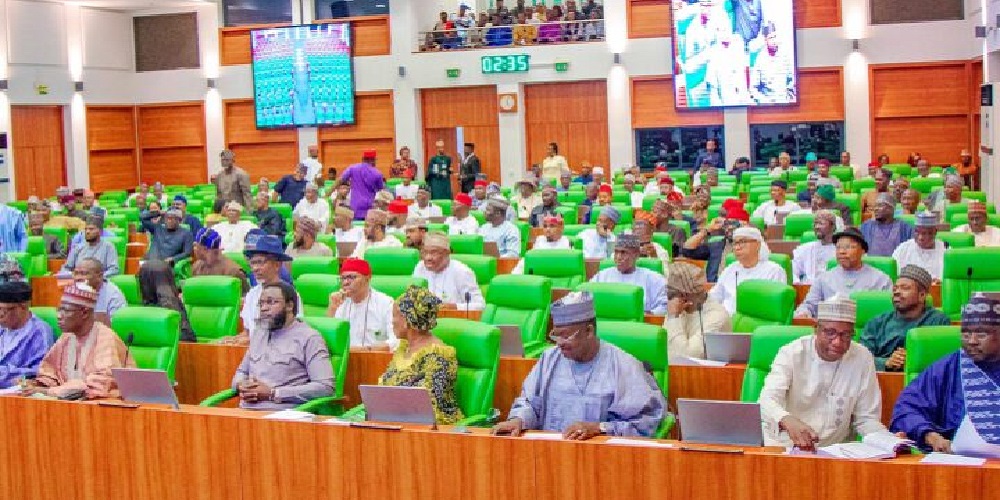
Members of the House of Representatives, on Tuesday, tasked Federal and State Governments with the need to increase the budgetary allocation for education to accommodate three basic education for Nigerian children.
The resolution was passed sequel to the adoption of a motion on the ‘Need to curb the number of Out-of-School Children’, sponsored by Hon. Olamijuwonlo Alao-Akala.
While noting that Education is a fundamental human right of every child yet, thousands of Nigeria children are being deprived of this basic human right, Hon. Alao-Akala affirmed that education plays a crucial role in breaking the cycle of poverty, promoting social and economic development.
In his lead debate, Hon. Alao-Akala observed that the “provisions on Right to Education in Chapter 2 of the Constitution of the Federal Republic of Nigeria, 1999 though regarded as non-justiciable by Chapter 6 of the Constitution, have been given effect and made justiciable by other domestic laws such as the Compulsory Universal Basic Education Act (UBEA) 2004 and the Child’s Rights Act of 2003.
“The House recalls that the 1991 Convention on the Rights of the Child was domesticated into National Law and passed by the National Assembly in July 2003 as the Child Rights Act of 2003 (CRA).
“The House also recalls that Section 15 of CRA provides that: ‘Every child has the right to free compulsory and universal basic education and it shall be the duty of the Government in Nigeria to provide such education’ while Section 2(1) of the UBEC Act provides that: ‘Every Government in Nigeria shall provide tree, compulsory and universal basic education for every child of primary and junior secondary school age.
“The House is cognizant that the UNESCO Institute for Statistics approximated 258 million out-of-school children are out of school globally, with sub-Saharan Africa and South Asia being the most affected regions.
“The House is also cognizant that the issue of out-of-school children is a multifaceted problem with far-reaching consequences.
“The House is further cognizant of the significant role and obligations of parents and guardians in the prompt attendance of their children and wards in school, as well as the consequences of their failure as captured in Section 2(2) and (4) respectively, of the UBEC Act.
“The House is concerned that the actualization of promoting the Right to Education is bedeviled by issues such as low enrolment of children particularly the girl child, low completion of basic education, shortage and poor quality infrastructures in schools, amongst others.
“The House believes that education plays a crucial role in breaking the cycle of poverty and promoting social and economic development.
“The House also believes that to ensure the efficiency and productivity of children as well as security for a better future for the Nigerian child, swift action need to be taken w address the education crisis,” he urged.
The lawmakers also urged Ministry of Education to ensure the realisation of free basic education for all Nigerian children with no hidden charges.
The House also tasked the 36 State Governments to actualise the right to free basic education in all states in Nigeria and mandate the compulsory enrolment of all children in their States.
In the same vein, the lawmakers urged UBEC to prescribe the minimum standards for basic education, with effective and strict monitoring of the standards and personnel audit of teaching and non-teaching staff.
They also urged State Enforcement Agencies to hold children found loitering during school hours and have their parents face the appropriate consequences.
To this end, the House mandated its Committee on Basic Education and Services to ensure compliance.
News
Five injured as explosion rocks CCTV store in Lagos
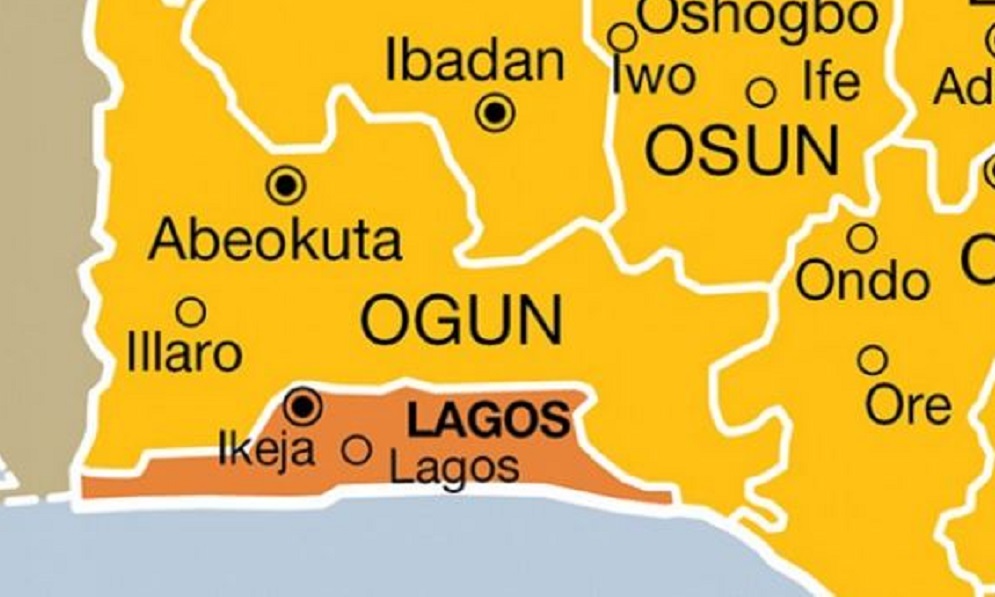
Five persons sustained varying degrees of injuries when an explosion occurred inside a CCTV camera dealer’s shop along Kodesho Street, Computer Village, Ikeja area of the state on Friday evening.
Police Public Relations Officer (PPRO) in the state, CSP Benjamin Hundeyin disclosed this in a statement.
Hundeyin said the explosion occurred around 6:35 pm.
The scene of the explosion and adjoining areas were immediately taken over and cordoned off by operatives of the Explosive Ordnance Disposal (EOD) Unit of the command, the Mobile Police Detachment and Conventional Police Teams, the PPRO stated.
He added that the scene was swept by the EOD experts of the command to ensure the safety of residents and facilitate a comprehensive investigation to determine the actual cause of the explosion.
According to him, five persons inside and around the shop that sustained various degrees of injury have been rescued and swiftly recovered to the Lagos State University Teaching Hospital (LASUTH) for medical attention.
“The Commissioner of Police, Lagos State Command, CP Olohundare Jimoh, arrived at the scene within minutes for an on-the-spot assessment.
“He has assured the public that the command is fully on top of the situation and has urged residents of Lagos to remain calm and not to panic,” the police spokesman stated.
“While investigations are ongoing to determine the exact cause of the explosion and other factors that might have caused the incident, the general public are enjoined to go about their lawful engagements and businesses peacefully without fear or apprehension, as the scene of the explosion and the adjoining area have been rendered safe and secured,” he added.
The command assured the general public of its commitment to continue to maintain peace and security throughout the state.
News
El-Rufai to critics: “There is no need for concern, it was merely a lunch with Buhari.”

Former Kaduna State Governor, Nasir El-Rufai, has downplayed speculations surrounding Friday’s high-profile visit to former President Muhammadu Buhari, clarifying that the meeting had no political undertones.
The visit, which took place in Kaduna, was led by former Vice President and 2023 PDP presidential candidate Atiku Abubakar. The delegation included notable political figures such as former Sokoto State Governor Aminu Tambuwal, former Minister of Communications Isa Pantami, and ex-governors Achike Udenwa (Imo), Gabriel Suswam (Benue), and Jibrilla Bindow (Adamawa).
The gathering sparked public debate, particularly given El-Rufai’s recent defection from the All Progressives Congress (APC) to the Social Democratic Party (SDP).
However, in a post shared on X (formerly Twitter), El-Rufai dismissed any political motives behind the visit.
“We joined over faithful for Jumaat prayers at the Yahaya Road Mosque and had a sumptuous lunch at the Buhari Residence,” he wrote. “By the way, our adversaries should not lose any sleep. It is not about politics. It is about unity and brotherhood. And since we are all politically irrelevant, we just prayed and enjoyed lunch with our mentor.”
El-Rufai earlier disclosed that he informed Buhari ahead of his exit from the APC to the Social Democratic Party and that the former president offered prayers and support for his decision.
Buhari reacted, reaffirming his loyalty to the APC despite recent political shifts among his allies.
News
AEDC Announces Power Outage In Parts Of FCT, Niger State

The Abuja Electricity Distribution Company (AEDC) has announced a power outage in parts of the Federal Capital Territory (FCT) and areas on the outskirts.
Areas such as Kaduna road, APC quarters are in Niger State axis close to the FCT.
This was stated in a release by the distribution company on Friday.
“Dear valued customers in Maitama Panama Street, Kaduna Road, APC Quarters, Kantoma Empire Energy, Vertex, Royal Institute, and its surrounding areas.”
“We Regret to inform you that the power outage is due to a technical fault on the feeder serving these areas.”
“Our dedicated technical team is working tirelessly to restore power as quickly as possible. Thank you for your understanding and patience as we work to serve you better,” the statement read.
On March 31st, the AEDC made a similar announcement on blackout in the FCT.
“Dear valued customers in Utako, Wuye, Jabi, Airport, NJI, NARSDA, NABDA, Lugbe Shoprite, Riverpark Estate, War College, Dunamis, NIGCOMSAT, Nigeria-Korea Model School; also customers in Lugbe Primary, Zuma Steel, Kapwa Village, NIA Junior/Senior, Tipper Garage, Tudu Wada, Peace Village, Video Club, CRD, 1R, T-Pumpy Estate, New Site, Back of Dunamis, Jedo, and Forte Royal Estate.”
“Customers in Aso Drive, NSA, NASS, NJC, FJC, and Supreme Court; Wubassy Barracks, Army War College, Mambila Barrack, Yara Dua Barrack, DIA, Niger Barrack, Lungi & Agu Irosi Barrack, and surrounding areas.”
“We regret to inform you that the power outage is due to a technical fault on the feeder serving these areas. Our dedicated technical team is working tirelessly to restore power as quickly as possible,” the statement read.
Earlier in February this year, the Transmission Company of Nigeria (TCN) announced a blackout in the Capital Territory.
It was noted then that maintenance crews were scheduled to conduct preventive work on the 2x100MVA TR3 & TR4 transformers at the Apo 132/33kV Transmission Substation on Saturday, February 22, and Sunday, February 23, 2025, from 9am to 4pm daily.
As a result, critical areas of Abuja, including the National Hospital, G2 Injection Station, Garki, Area 1, and Asokoro, were expected to experience a seven-hour power cut.
Similarly, the Apo Legislative Quarters, Apo Resettlement, Gudu, Apo Mechanic, and surrounding areas were plunged into darkness for seven hours.
According to the TCN Public Affairs GM, Ndidi Mbah, the power outage was unavoidable due to the inability of Abuja DisCo to receive bulk power supply during the maintenance period.
-

 News16 hours ago
News16 hours agoConstituents Drag Akpabio, Senate to Court Over Suspension of Natasha
-
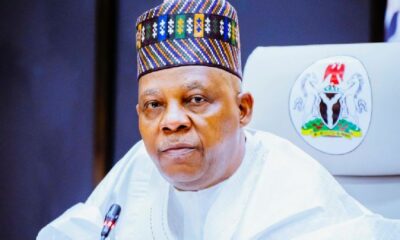
 News24 hours ago
News24 hours agoSecurity operatives halt attempt to break into VP Shettima’s residence, nab suspect
-

 News23 hours ago
News23 hours agoSuit Seeking To Sack Ibas As Administrator Suffers Heavy Setback
-
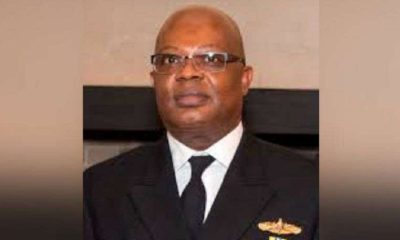
 News21 hours ago
News21 hours agoIbas pouring petrol on fire in Rivers, Briggs laments
-

 News15 hours ago
News15 hours agoFCT minister, Wike gives land allotees 21 days to pay or lose offer
-

 News22 hours ago
News22 hours agoPAINFUL! Six Persons Perish In Helicopter Crash
-
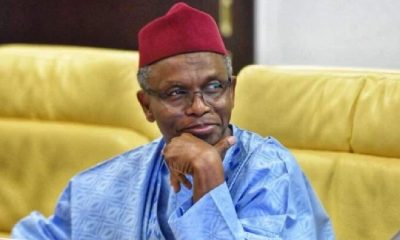
 News2 hours ago
News2 hours agoWe only had lunch with Buhari not 2027 politics -El-Rufai
-
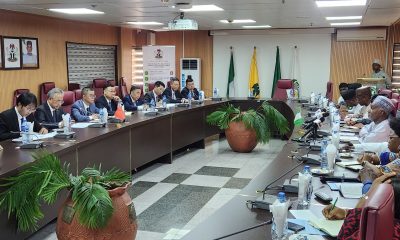
 News16 hours ago
News16 hours agoNigeria-China Reaffirms Commitment To Strategic Partnership






